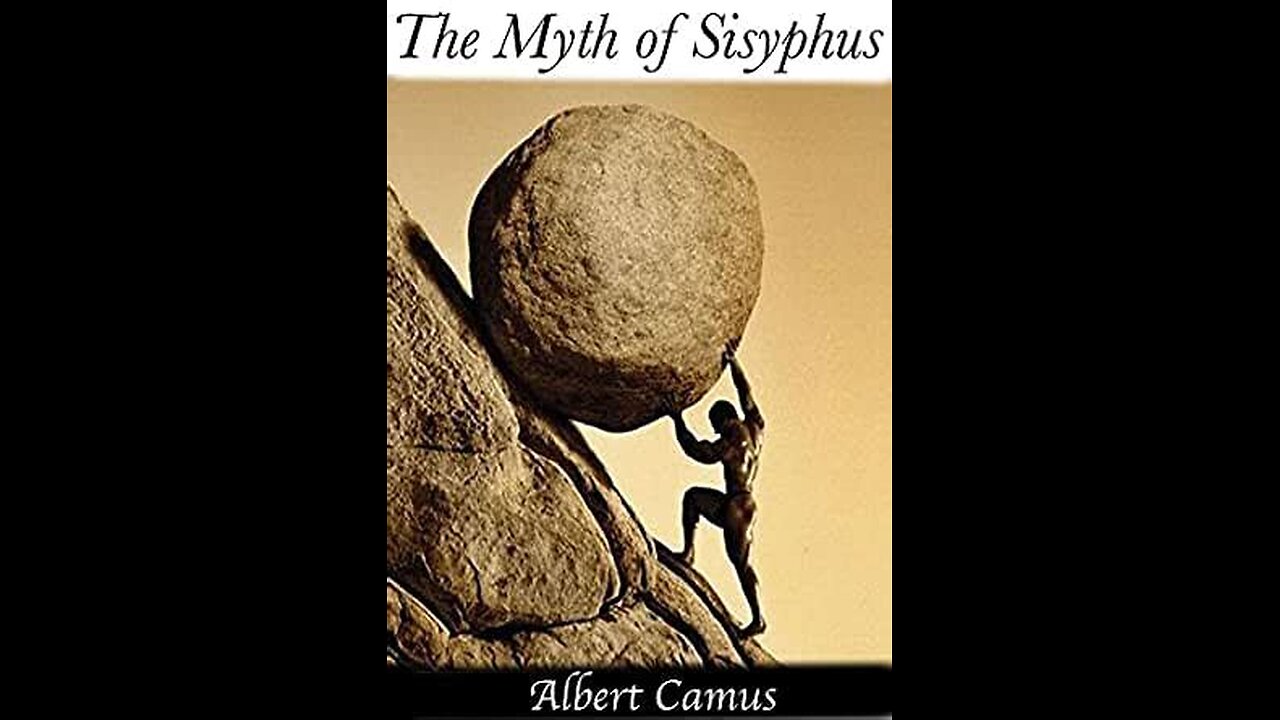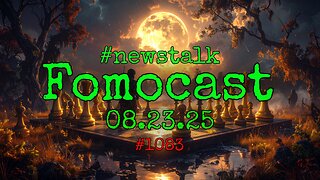Premium Only Content

The Myth of Sisyphus by Albert Camus | Summary and Critique
Buy Here: https://amzn.to/3C0r4v8
"""The Myth of Sisyphus"" is a philosophical essay written by Albert Camus and published in 1942. In this work, Camus delves into the concept of the absurd and explores the philosophical implications of the human condition. The central question Camus addresses is whether life is worth living in a world devoid of inherent meaning and purpose.
Camus begins by examining the mythological figure of Sisyphus, who is condemned by the gods to roll a boulder up a hill only to have it roll back down, requiring him to repeat the task endlessly. Sisyphus's situation represents the human condition, characterized by the repetitive and seemingly futile nature of existence. Camus argues that Sisyphus is the epitome of the absurd hero, as he confronts the absurdity of his task yet continues to persevere.
The essay explores the tension between the human desire for meaning and the indifference of the universe. Camus contends that humans instinctively seek meaning and purpose but are confronted with a world that remains silent and indifferent to their quest. The absurd arises from the inherent contradiction between this human search for meaning and the inherent meaninglessness of the universe.
Camus proposes that the realization and acceptance of the absurd can lead to a form of philosophical revolt. Rather than seeking to escape or deny the absurd, individuals should embrace it and find meaning through the act of rebellion. This rebellion involves asserting one's freedom and living authentically in the face of the absurd, fully aware of the absence of ultimate meaning.
Critique of ""The Myth of Sisyphus"" includes the following points:
1. Subjectivity of the Absurd: Critics argue that the experience of the absurd is subjective, and not everyone may resonate with Camus's perspective. Some individuals may find meaning and purpose in life through personal relationships, creative pursuits, or religious beliefs, which may alleviate the sense of absurdity. Camus's focus on the absurd as a universal condition may overlook the diversity of human experiences and coping mechanisms.
2. Lack of Practical Guidance: The essay has been criticized for its philosophical and abstract nature, offering little practical guidance on how to live authentically in the face of the absurd. Critics argue that Camus does not provide concrete strategies or ethical frameworks for individuals to navigate the challenges posed by the absurd.
3. Neglect of Interpersonal Relationships: Some critics contend that Camus underemphasizes the role of interpersonal relationships and social connections in finding meaning and purpose. They argue that the focus on individual revolt and rebellion may neglect the importance of communal values, empathy, and solidarity in confronting the absurd.
4. Existential Optimism: Critics suggest that Camus's portrayal of the absurd may be excessively pessimistic. They argue that while life may lack inherent meaning, individuals can create meaning through personal choices, values, and commitments. This existential optimism challenges the notion that the absurd necessarily leads to despair or nihilism.
5. Ambiguity and Paradox: Some critics argue that Camus's writing in ""The Myth of Sisyphus"" can be ambiguous and paradoxical. The concepts of rebellion and living authentically in the face of the absurd may be open to different interpretations, leading to divergent understandings of Camus's philosophy.
Despite these critiques, ""The Myth of Sisyphus"" remains a significant work in existentialist philosophy, exploring themes of meaning, freedom, and the human condition. It prompts readers to reflect on the fundamental questions of existence and invites them to confront the inherent absurdity of life. The essay continues to inspire philosophical discussions and debates surrounding the search for meaning in an indifferent world."
-
 DVR
DVR
DLDAfterDark
5 hours ago $0.11 earnedDLD Live! Feat. Red Dawn Readiness! Glock FRT's - Striker Fire Safety Concerns - ACE Trigger
11.4K1 -
 DVR
DVR
BlackDiamondGunsandGear
4 hours agoAre ALL Striker Fired Pistols UNSAFE? // After Hours Armory
27K4 -
 6:34:50
6:34:50
SpartakusLIVE
8 hours ago#1 Saturday Spartoons on RUMBLE PREMIUM
102K6 -
 1:04:59
1:04:59
Man in America
9 hours ago“Summoning the Demon” — The AI Agenda Is FAR WORSE Than We Know w/ Kay Rubacek
34.7K20 -
 2:16:48
2:16:48
Tundra Tactical
7 hours ago $0.07 earned🎯💥 The World’s Okayest Gun Show 🔫😂 | LIVE Tonight on Rumble!
20.2K -
 3:36:03
3:36:03
Mally_Mouse
1 day ago🌶️ 🥵Spicy BITE Saturday!! 🥵🌶️- Let's Play: Tower Unite!
43.6K1 -
 58:59
58:59
MattMorseTV
7 hours ago $1.27 earned🔴Trump just BROKE Newsom.🔴
59.9K65 -
 18:14
18:14
Her Patriot Voice
7 hours agoWho Is WORSE for NYC: Trump Girl or Socialist?
39.6K28 -
 3:39:42
3:39:42
SavageJayGatsby
6 hours agoSpicy Saturday with Mally! | Road to 100 | $300 Weekly Goal for Spicy Bites!
41.5K1 -
 3:35:50
3:35:50
FomoTV
8 hours ago🚨 Swamp Theater: FBI Raids Bolton 🕵 Still NO Epstein Files, Trump's Troops & the Red Heifer Hoax 🐂 | Fomocast 08.23.25
17.7K3